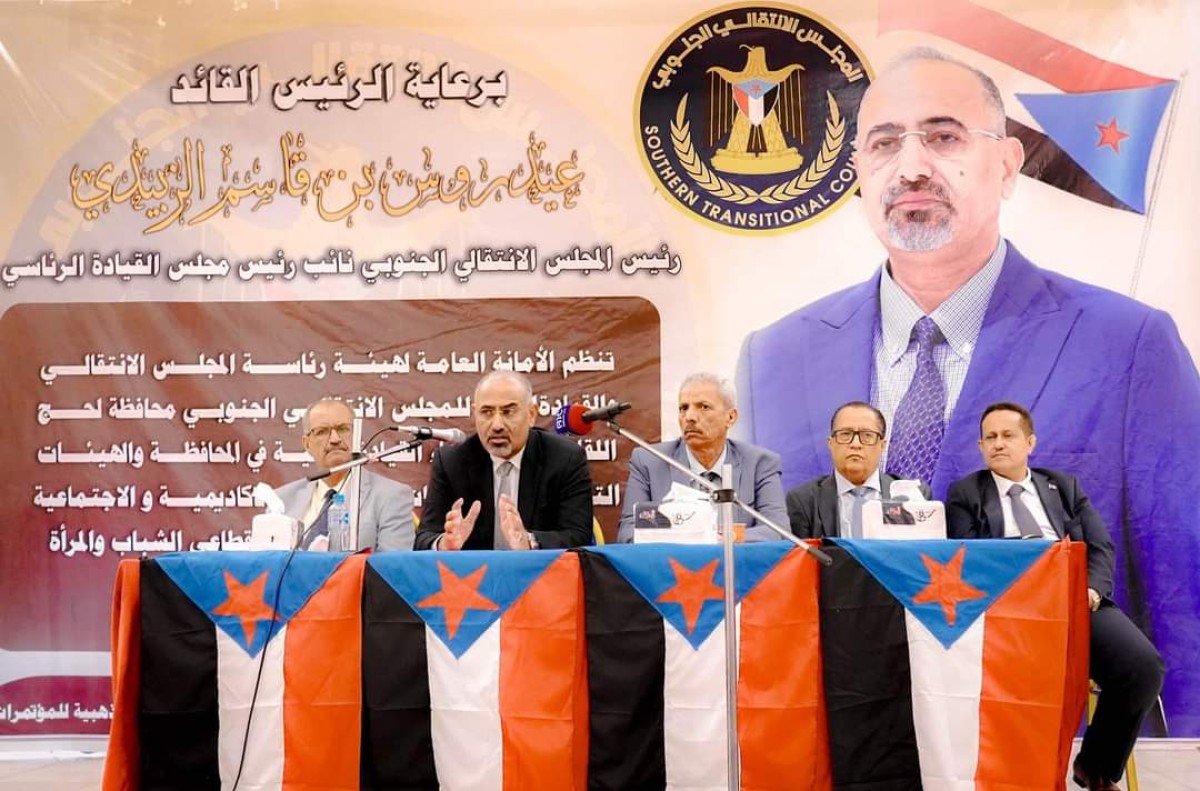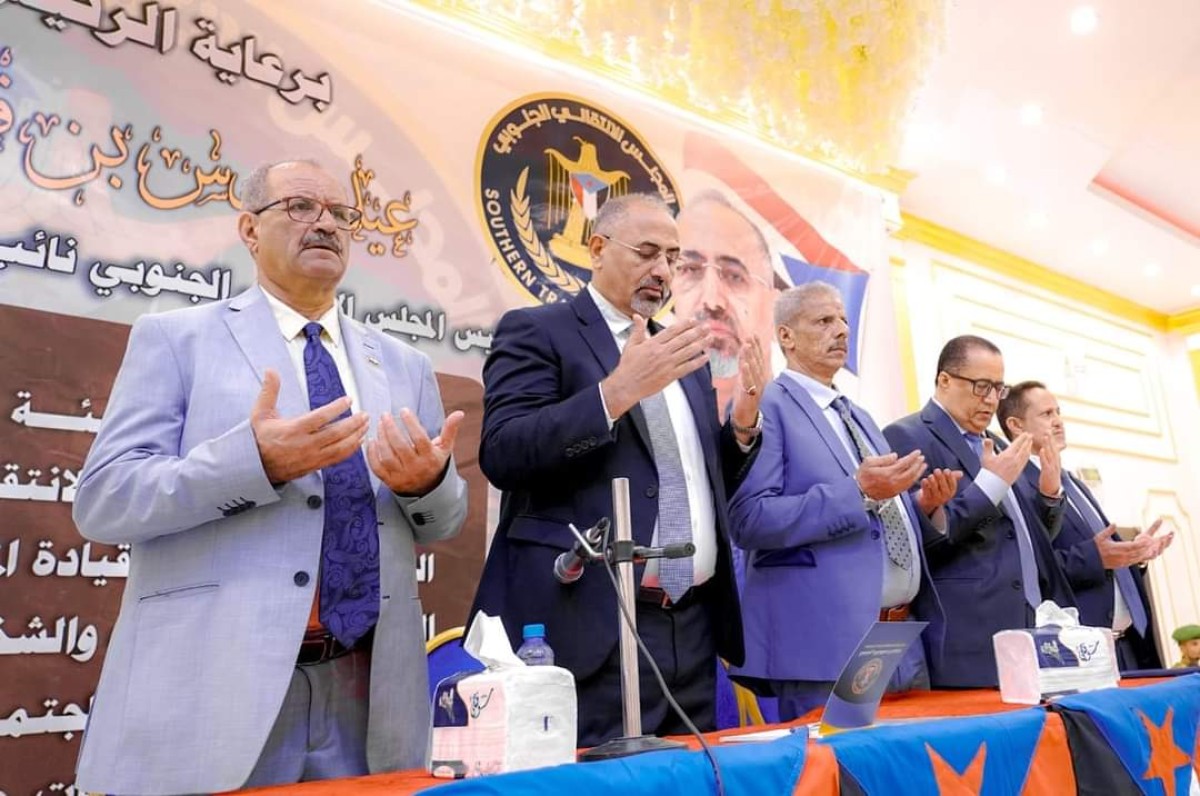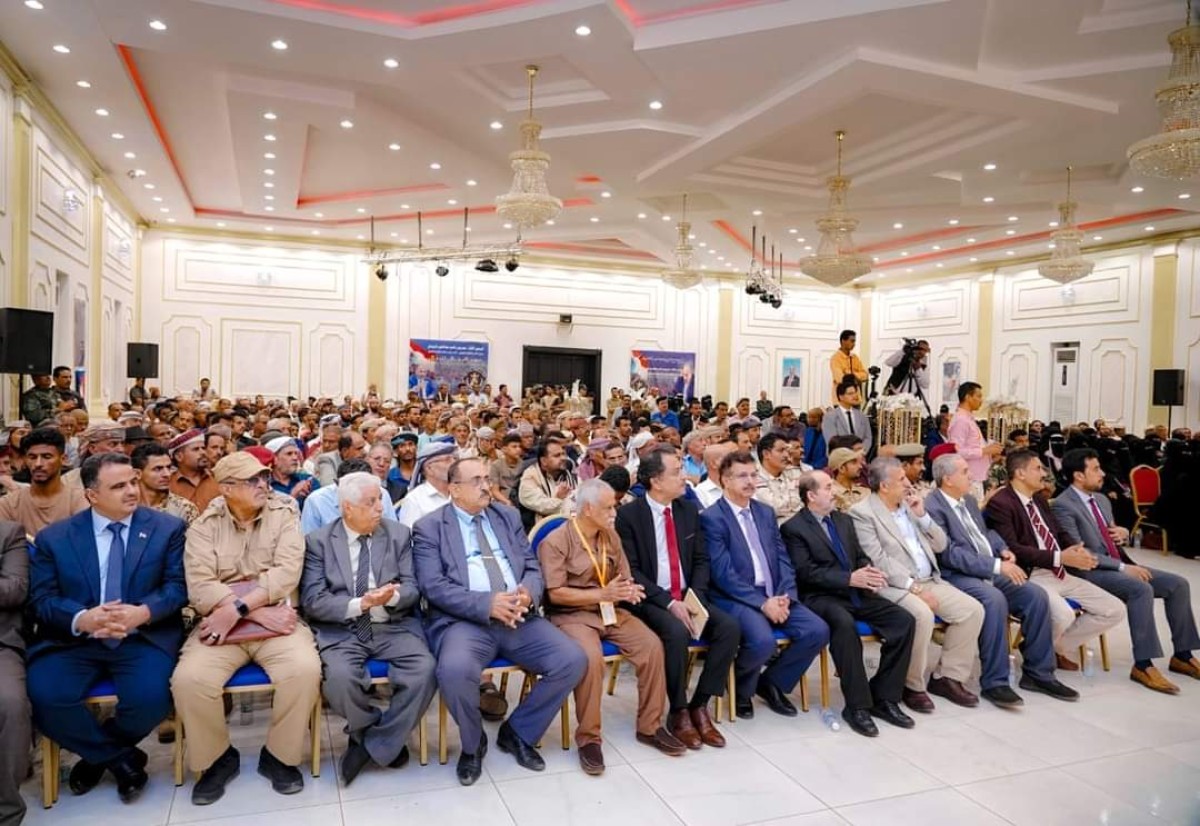Al-Zubaidi: We do not deny the importance of what #Lahj provided in the various stages of the history of the South


Major General Aidaroos Qasim Al-Zubaidi, President of the Southern Transitional Council, Deputy Chairman of the Presidential Leadership Council, accompanied by the Secretary-General of the General Secretariat of the Presidency, Fadl Al-Jaadi, Dr. Nasser Al-Khubaji, Head of the Political Commission, Head of the Negotiations Affairs Unit of the Southern Transitional Council, and a number of members of the Council’s Presidency, Today, Saturday, the heads of the auxiliary bodies made an inspection visit to Lahj Governorate, where they were received by the governor of the governorate, Major General Ahmed Abdullah Turki, Wadah Al-Halmi, the governorate’s transitional chief executive, the directors of the governorate’s executive offices, and a large gathering of security and military leaders, sheikhs and notables.
At the beginning of his visit, Al-Zubaidi attended the expanded consultative meeting organized by the General Secretariat for members of the local leadership of the Transitional Council in Lahj Governorate, the Council’s Coordinator at Lahj University, civil society leaders in the governorate, and the youth and women’s sectors, where he delivered a speech in the meeting in which he emphasized the role played by Lahj Governorate. Throughout the stages of the southern revolution since its inception.
Al-Zubaidi said in the context of his speech: “Lahj is a major stronghold of the southern revolution, and the incubator of the southern project, and the spirit of the south and its strategic depth will remain with the important position it occupies and the cadres and competencies it abounds in.”
Al-Zubaidi addressed the attendees, saying: “Today I am in the governorate that has provided a lot since the beginning of the revolution, and no one denies what Lahj Governorate has provided in the various stages of the history of the south, and Lahj is proud enough that its directorates have embraced resistance camps from the beginning.”
In his speech, Al-Zubaidi reviewed the latest developments related to the political process and the road map presented by the envoy of the United Nations Secretary-General for a political solution, the position of the South and its issue in it, and the developments related to the Houthi escalation in Bab al-Mandab and the Red Sea and its repercussions on the peace process.
In the context of his speech, he reiterated the importance of cohesion and strengthening the southern national alignment at this critical stage in the history of the south, stressing the need to coordinate efforts between the executive bodies of the local leadership of the Transitional Council and the local authorities in the governorates and districts.
On the organizational side, Al-Zubaidi stressed that the next stage requires intensifying efforts in the organizational aspect at the level of the Transitional Council bodies, stressing the importance of the Council’s leaders engaging with the masses, feeling their conditions, and working side by side with the local authorities to alleviate their suffering.
During his visit to Lahj Governorate, President Al-Zubaidi chaired an important meeting of the security committee in the governorate, in the presence of the head of the committee, the governor of the governorate, Major General Ahmed Abdullah Turki.
Al-Zubaidi directed, in the meeting attended by Major General Kamal Hamshari, member of the Presidency, Director of the Office of the President of the Council, Commander of the Ground Forces, Major General Ahmed Ali Al-Bishi, and a number of military leaders, to raise all military points along the main road in the governorate, starting from the Rabat point until the end.
Al-Zubaidi also stressed in the context the need to raise the level of coordination between security and military units through the joint operations room, and for the security units to carry out their role in protecting the citizen, preserving his rights, and preserving public tranquility.

